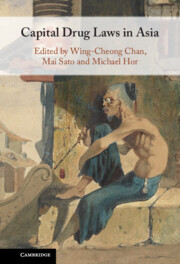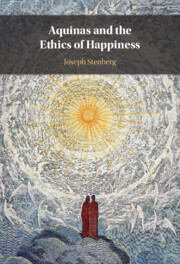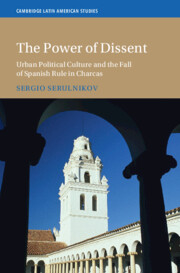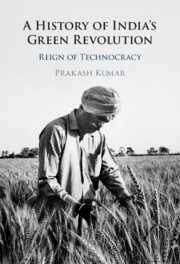Refine search
Actions for selected content:
3372667 results
The Annan Protectorate in northern Vietnam during the Tang period (679–907)
-
- Journal:
- Journal of the Royal Asiatic Society , First View
- Published online by Cambridge University Press:
- 08 August 2025, pp. 1-21
-
- Article
-
- You have access
- Open access
- HTML
- Export citation
Books and Documents on Africa in Microform
-
- Journal:
- African Studies Review / Volume 12 / Issue 1 / April 1969
- Published online by Cambridge University Press:
- 08 August 2025, pp. 91-110
-
- Article
- Export citation
African Studies and Training in West Germany
-
- Journal:
- African Studies Review / Volume 6 / Issue 1 / March 1963
- Published online by Cambridge University Press:
- 08 August 2025, pp. 14-21
-
- Article
- Export citation
African Studies in the United States: Report for Dr. Paul Miller, Department of Health, Education and Welfare
-
- Journal:
- African Studies Review / Volume 10 / Issue 3 / December 1967
- Published online by Cambridge University Press:
- 08 August 2025, pp. 96-108
-
- Article
- Export citation
Africana at Duquesne University Library
-
- Journal:
- African Studies Review / Volume 6 / Issue 3 / October 1963
- Published online by Cambridge University Press:
- 08 August 2025, pp. 25-27
-
- Article
- Export citation
Transpatial Modernity: Chinese Cultural Encounters with Russia via Japan (1880–1930) By Xiaolu Ma. Cambridge: Harvard University Asia Center, 2024. 360 pages. Hardcover, $59.95 USD, ISBN: 9780674295834.
-
- Journal:
- International Journal of Asian Studies , First View
- Published online by Cambridge University Press:
- 08 August 2025, pp. 1-4
-
- Article
- Export citation
Introduction: Tariff Turbulence: The New US Trade Policy and its Impact on the Global Trading System
-
- Journal:
- World Trade Review , First View
- Published online by Cambridge University Press:
- 08 August 2025, pp. 1-3
-
- Article
-
- You have access
- Open access
- HTML
- Export citation
(27) Scope of State Economic Initiative in Some African Socialist Countries
-
- Journal:
- African Studies Review / Volume 7 / Issue 4 / December 1964
- Published online by Cambridge University Press:
- 08 August 2025, p. 23
-
- Article
- Export citation
News and Notes
-
- Journal:
- African Studies Review / Volume 3 / Issue 4 / December 1960
- Published online by Cambridge University Press:
- 08 August 2025, pp. 50-55
-
- Article
-
- You have access
- Export citation
Recognising our reviewers of 2024
-
- Journal:
- Journal of Management & Organization / Volume 31 / Issue 3 / May 2025
- Published online by Cambridge University Press:
- 08 August 2025, pp. 1012-1014
-
- Article
-
- You have access
- Open access
- HTML
- Export citation
Christy K. Schuetze. Spirit Wives and Church Mothers: Marriage, Survival, and Healing in Central Mozambique. Madison, WI: University of Wisconsin Press, 2023. 286 pp. Photographs. Maps. Notes. Bibliography. Index. $79.95. Hardcover. ISBN: 9780299343804.
-
- Journal:
- African Studies Review , First View
- Published online by Cambridge University Press:
- 08 August 2025, pp. 1-2
-
- Article
-
- You have access
- HTML
- Export citation
Africana in the Scottish Geographical Magazine, 1885–1914
-
- Journal:
- African Studies Review / Volume 9 / Issue 3 / December 1966
- Published online by Cambridge University Press:
- 08 August 2025, pp. 88-102
-
- Article
- Export citation
Multi-marker analysis of Fasciola gigantica from cattle and buffalo across Pakistan reveals high levels of genetic diversity and novel haplotypes
-
- Journal:
- Parasitology / Accepted manuscript
- Published online by Cambridge University Press:
- 08 August 2025, pp. 1-31
-
- Article
-
- You have access
- Open access
- Export citation

Dreams and Songs to Sing
- A People's History of Liverpool FC from Shankly to Klopp
-
- Published online:
- 07 August 2025
- Print publication:
- 07 August 2025

Capital Drug Laws in Asia
-
- Published online:
- 07 August 2025
- Print publication:
- 24 July 2025

Stability and Politicization in Climate Governance
-
- Published online:
- 07 August 2025
- Print publication:
- 21 August 2025
-
- Book
-
- You have access
- Open access
- Export citation

Aquinas and the Ethics of Happiness
-
- Published online:
- 07 August 2025
- Print publication:
- 21 August 2025

Enforced Disappearances
- On Universal Responses to a Worldwide Phenomenon
-
- Published online:
- 07 August 2025
- Print publication:
- 21 August 2025
-
- Book
-
- You have access
- Open access
- Export citation

The Power of Dissent
- Urban Political Culture and the Fall of Spanish Rule in Charcas
-
- Published online:
- 07 August 2025
- Print publication:
- 07 August 2025

A History of India's Green Revolution
- Reign of Technocracy
-
- Published online:
- 07 August 2025
- Print publication:
- 21 August 2025
